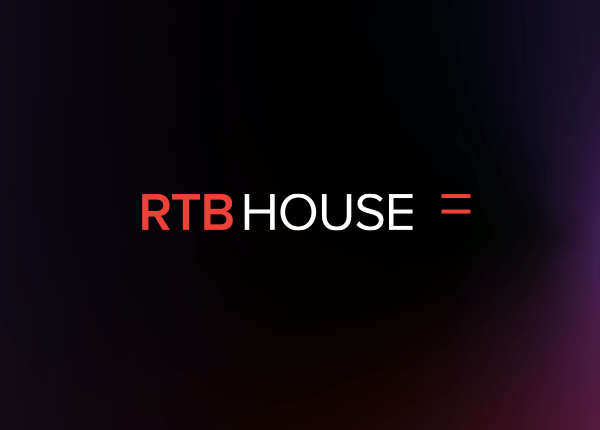Last Updated on: 26th May 2024, 07:31 pm
In this Media Review, you can read 5 stories, including Google renaming FLEDGE to Protected Audience API, results from Google Ads’ IBA testing, and more details about Apple’s change in Safari.
Table of Contents:
- Protected Audience API: Our new name for FLEDGE – The Privacy Sandbox
- The Trade Desk Is Forgoing Public Operators For Unified ID 2.0 – AdExchanger
- Seller-Defined Audiences Analysis Series – Part II: Contextual SDA Quality Tests – RTB House Blog
- Results from Google Ads’ interest-based advertising testing – Google Ads & Commerce Blog
- How A Minor Apple WebKit Tweak Can Send Ripples (Or Trigger Tsunamis) Across Marketing Tech – AdExchanger
Protected Audience API: Our new name for FLEDGE – The Privacy Sandbox
= Google announced the renaming of FLEDGE (First Locally-Executed Decision over Groups Experiment) to Protected Audience API because the solution is no longer an experiment but a privacy-oriented API. It was also emphasized that the underlying code remains intact.
= It was also confirmed by Google that the Privacy Sandbox’s General Availability stage is to be gradually implemented in Chrome’s M115 milestone (planned for Aug 2023), which means that the current percentage of Chrome traffic with the Privacy Sandbox enabled will incrementally increase from the current 5% up to 100%.
The Trade Desk Is Forgoing Public Operators For Unified ID 2.0 – AdExchanger
= With Prebid withdrawing from being the only public operator of UID 2.0, The Trade Desk was reported to be focusing on leveraging the solution in the private operator setup instead. This means it will no longer attempt to attain independent operators and administrators for it. The article revisits the difference between public and private operators and explains that the first one accesses the service by using its API and produces tokens and IDs, while the latter uses UID2 internally based only on their own or their clients’ 1st-party data.
= This decision seems to be in line with the market trends observed by AdWeek where the cookie alternatives tests in the form of various EIDs have significantly slowed down as they do not provide measurable results for the buy-side and lack transparency for the sell-side.
= Then there are partitioned 1st-party identifiers, which reportedly got very good results in tests performed by Graham Media. Ads that used survey-based audiences encoded into PPID were reported to have brought a 29% larger click-through rate than those with no PPID. Overall, Graham Media’s CPMs have increased by around 6% since PPID implementation. The article also emphasizes that the company doesn’t intend to use any identifiers, which can be traced back to an individual (thus, replicating the 3rd-party cookies’ main flaws) and that it’s tough to reliably test cookieless solutions in an environment where 3rd-party cookies still exist.
Seller-Defined Audiences Analysis Series – Part II: Contextual SDA Quality Tests – RTB House Blog
= The article presents the results of testing the quality of contextual signals from a cookieless solution created by IAB Tech Lab, called Seller-Defined Audiences. The test relied on checking how those signals related to the well-grounded and reliable legacy technologies: RTB House’s proprietary contextual AI engine – ContextAI – and SSP’s audiences sent via Deal IDs.
= It was determined that the match rate between SSP’s audiences and the expected correlated contextual SDAs equated to at least 80% (or even 99% in some instances) while testing against ContextAI’s labels achieved an 85% average match rate across the top 10 segments. Thus, the results positively verified the reliability of contextual SDA signals.
Results from Google Ads’ interest-based advertising testing – Google Ads & Commerce Blog
= Google published the results of its interest-based advertising (IBA) testing using some of the cookieless-dedicated technologies. The experiment relied on comparing the performance of IBA using privacy-preserving signals (which consisted of contextual signals, Topics API signals, and 1st-party IDs) to 3rd-party cookies. It was also stressed that frequency capping and measurement were provided through the use of 3rd-party cookies in both the test and the control group. The reported outcomes were encouraging, as Google claims, with a 2-7% decrease in Google Display Ads advertiser spend (IBA with privacy-preserving signals against 3rd-party cookies), 1-3% decrease in conversions per dollar, and click-through rates within 90% of the legacy technology.
= RTB House reacted to these results by pointing out that while the test publication was well received by the industry, the test itself lacked a couple of elements that would make it more valuable:
- A portion of traffic with 3rd-party cookies completely shut down would more effectively simulate the future reality for the test group.
- Information about how each of the signal types in the mix might have impacted the result of the test group. It would obviously demand the creation of a few different test groups with isolated cookieless solutions inside.
= Lastly, it was announced in CMA’s Q1 2023 Update Report that Google will improve its Topics API classifier to analyze not only the URLs’ hostname but also page titles, which should account for more precise Topics APIs label assignments. On top of that, Google pledged to update the Topics API taxonomy with more segments and expressed a desire to hand over its governance to an external party, which “would continuously incorporate feedback from across the industry.”
How A Minor Apple WebKit Tweak Can Send Ripples (Or Trigger Tsunamis) Across Marketing Tech – AdExchanger
= AdExchanger reported that Apple has implemented a change in Safari, which aims at demystifying A/AAA records, similarly to how it was done for CNAME. The goal of this update is to determine whether cookies are stored by 3rd-parties in the 1st-party context. If that proved true, the article claimed that Safari would treat their cookies as 3rd-party and cap their lifetime to 7 days.
= However, the article emphasized that not all 3rd-parties will be treated in the same way and that the update will have clear winners and losers, which jeopardizes the utility of solutions like Google Tag Manager and Google Analytics on Safari. On the other hand, Cloudflare and Shopify, which operate servers and provide web hosting services, are beneficiaries as their potential analytics will have the 1st-party privilege.
= Meanwhile, Google assured it would support Apple’s SKAdNetwork and published a document with best practices on how to use it with Google reporting tools.
If you have any questions, comments or issues, or you’re interested in meeting with us, please get in touch.





























